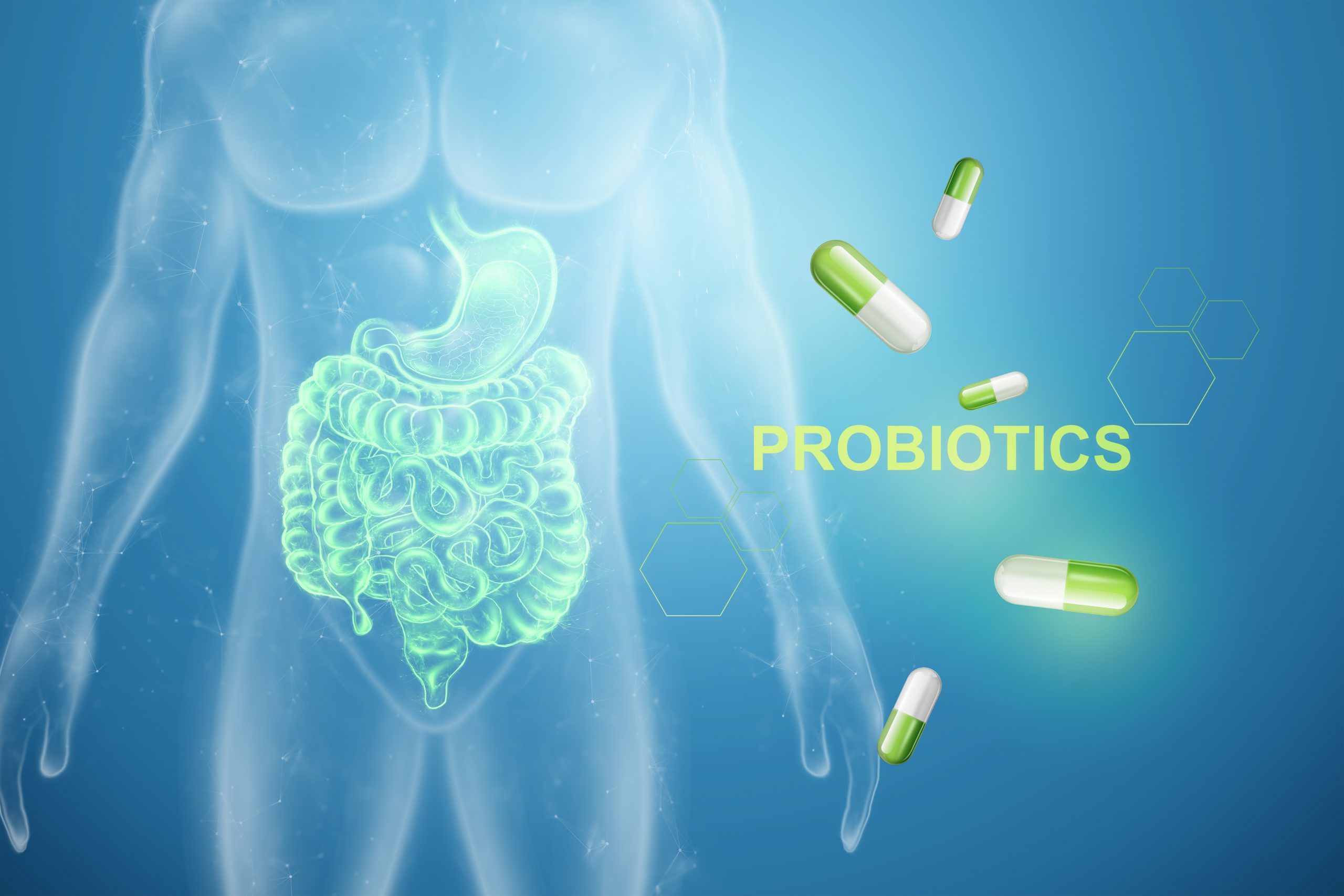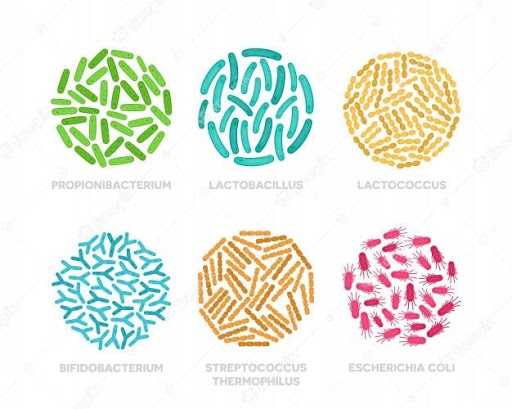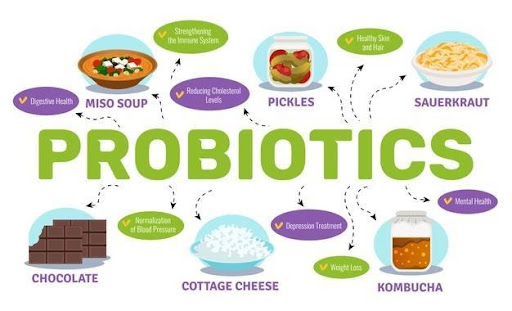
Is Probiotic Supplement Necessary?
Chua Chun Sui
November 12, 2021

After devouring your long-waited meals, have you ever experienced discomfort and bloating in your stomach? If that’s the case, the symptoms may be related to the gut bacteria in your small intestine and colon. The presence of good bacteria has been shown to play an imperative role in maintaining optimal functionality for our gut. Now, the question lies on how we can warrant the right amount of those friendly bacteria presents inside our body. The term “probiotics” is not unfamiliar to many, in term of their roles in preserving and promoting the growth of gut bacteria. However, the effectiveness of probiotic supplements, as compared to whole food sources, may not be well understood among public. Hence, it is worthwhile to take a deep dive into this subject.

Our gut contains wide array of bacteria, both helpful and potentially harmful. It is known that poor eating habits and overuse of antibiotics can have negative effects on the balance of gut bacteria, which is believed to contribute to health problems like gastrointestinal issues and immune dysfunction.
Probiotics is well-known as “good bacteria” as they contribute to the diversity in the gut microbiome and helping to maintain the natural balance of microflora in the intestines [1]. Certain probiotic products have proven that they may be helpful in treating irritable bowel syndrome, some types of diarrhoea, colitis, acne, and eczema in children [2-4]. They also show beneficial in treating antibiotic-associated diarrhoea in children and adults aged 18 to 64 years [5].

For bacteria to be considered as a true probiotic, a live microbial strain must be isolated from a human, survive in your intestine after being eaten, has a scientifically proven health benefit, and be safely consumed [1]. Because of these strict criteria, most supplements termed “probiotics” are not truly probiotics and their use may be misleading to consumers.

Probiotics are measured in colony forming units (CFU), which indicate the number of viable cells. Many probiotic supplements contain 1 to 10 billion CFU per dose, but some products contain up to 50 billion CFU or more. It is important to note that higher CFU counts do not necessarily mean more health benefits. While there is no official guideline on the most effective dosage for probiotics use, it is generally recommended to choose probiotic products with at least 1 billion colony forming units and containing the genus Lactobacillus, Bifidobacterium or Saccharomyces boulardii, some of the most researched probiotics [6].

Dietary supplements
Probiotics are available as dietary supplements in the forms of capsules, powders and liquids containing a wide variety of strains and doses [7]. These products often contain mixed cultures of live microorganisms rather than single strains. They include lactobacilli (Lactobacillus acidophilus and Lactobacillus GG), bifidobacteria (Bifidobacterium bifidus) and some yeasts (Saccharomyces boulardii). Different probiotics have different effects. Hence, while one may help treat diarrhea or a vaginal infection, another may not have the same health benefit.


Probiotics occur naturally in some foods and are added to other products such as yogurts, kefir, tempeh, miso, sauerkraut and kombucha. An important advantage of consuming probiotics through whole foods is that they can provide a greater source of overall nutrition than supplements. For example, probiotic-rich foods deliver micronutrients which are essential for optimal body function; plant-based food can help protect the body from oxidative damage and stress; and they contain high fiber which is the most crucial element for gut health.
Do you know that the live bacteria culture inside the probiotic foods needs food in order to survive? They are fed on a group of nutrients known as prebiotics. Basically, prebiotics are types of fiber found in fruits, vegetables, and legumes. While humans cannot digest the prebiotic fiber, the gut bacteria can. These provide nutrients to the good bacteria that support healthy digestion and immune system.

It is important to remember that not all probiotics behave the same way and have the same effects. Each has their own individual benefits. They generally don’t cause harm. To begin with, you can try to introduce probiotic-rich foods into your diet, instead of probiotic or prebiotic supplements. Before you start any supplements, it is advisable to talk to a dietitian or a doctor. As they may be able to point you in the right direction, helping you figure out the best probiotic to take, how much to take and when to take it. A conversation is always worth the time when it concerns your health [8].

[1] Ho Yu Kun D. Probiotics [Internet]. PORTAL MyHEALTH. 2014 [cited 25 October 2021]. Available from: http://www.myhealth.gov.my/en/probiotics/
[2] Yuan F, Ni H, Asche CV, Kim M, Walayat S, Ren J. Efficacy of Bifidobacterium infantis 35624 in patients with irritable bowel syndrome: a meta-analysis. Curr Med Res Opin. 2017;33(7):1191-1197. doi:10.1080/03007995.2017.1292230
[3] Mantegazza C, Molinari P, D’Auria E, Sonnino M, Morelli L, Zuccotti GV. Probiotics and antibiotic-associated diarrhea in children: A review and new evidence on Lactobacillus rhamnosus GG during and after antibiotic treatment. Pharmacol Res. 2018;128:63-72. doi:10.1016/j.phrs.2017.08.001
[4] Thomas DW, Greer FR; American Academy of Pediatrics Committee on Nutrition; American Academy of Pediatrics Section on Gastroenterology, Hepatology, and Nutrition. Probiotics and prebiotics in pediatrics. Pediatrics. 2010;126(6):1217-1231. doi:10.1542/peds.2010-2548
[5] Jafarnejad S, Shab-Bidar S, Speakman JR, Parastui K, Daneshi-Maskooni M, Djafarian K. Probiotics Reduce the Risk of Antibiotic-Associated Diarrhea in Adults (18-64 Years) but Not the Elderly (>65 Years): A Meta-Analysis. Nutr Clin Pract. 2016;31(4):502-513. doi:10.1177/0884533616639399
[6] Douglas LC, Sanders ME. Probiotics and prebiotics in dietetics practice [published correction appears in J Am Diet Assoc. 2008 Aug;108(8):1381]. J Am Diet Assoc. 2008;108(3):510-521. doi:10.1016/j.jada.2007.12.009
[7] Dietary Supplement Label Database [Internet]. 2021 [cited 25 October 2021]. Available from: https://dsld.od.nih.gov/search/probiotics/bWFya2V0X3N0YXR1cz1hbGwvZW50cnlfZGF0ZT0yMDExLDIwMjEvc29ydD1tYXRjaC9wYWdlX3NpemU9MjAv
[8] Probiotics: What is it, Benefits, Side Effects, Food & Types [Internet]. Cleveland Clinic. 2020 [cited 25 October 2021]. Available from: https://my.clevelandclinic.org/health/articles/14598-probiotics
Life Care Diagnostic Medical Centre Sdn. Bhd. 200401034597 (673106-V)
Bangsar South
WhatsApp: 0122343610
1st Floor, Wisma Lifecare,
No. 5, Jalan Kerinchi, Bangsar South,
59200 Kuala Lumpur
Cheras South
WhatsApp: 01127213620
19A-2 & 19B-2, Block E, Kompleks Komersil Akasa,
Jalan Akasa, Akasa Cheras Selatan,
43300 Seri Kembangan, Selangor
Operating Hour:
Monday – Friday: 8.00am – 5.00pm
Saturday: 8.00am – 1.00pm
Sunday & Public Holidays: Closed
